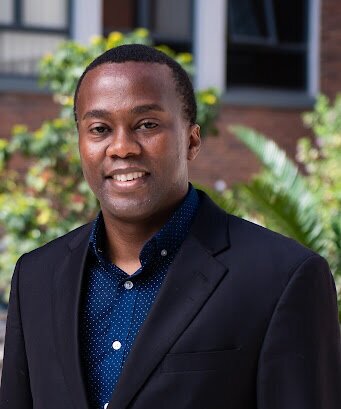Spotlight Interview with Dr. Bonga Chiliza
Location: KwaZulu-Natal, South Africa
Bio: Dr. Bonga Chiliza is an Associate Professor, Chief Specialist and Head of the Department of Psychiatry at the University of KwaZulu-Natal (UKZN). He completed his medical degree and psychiatry specialization at UKZN and his PhD at Stellenbosch University. His research interests include schizophrenia, consultation-liaison psychiatry, health services and medical education. He is the Deputy Editor of the South African Journal of Psychiatry, as well as the President-Elect of the South African Society of Psychiatrists. Prof Chiliza has received a number of awards including the Hamilton Naki Clinical Research Fellowship and the CINP Rafaelsen Young Investigators Award. He has authored over 50 peer reviewed articles and book chapters. He has also served on a number of NGO Boards, including the SA YMCA and Life Choices. He is one of the Founding Directors of Harambee Medical Consulting and African Global Mental Health Institute.
What has been your favorite part of your job? What has been a highlight of your career?
Dr. Chiliza believes his greatest achievement is to “build capacity for young psychiatrists . . . to be interested in academia, research, and the academic fellowship line.” During his education, he mentions being “taken aback” that his professors did not look like him; he wanted future students to have Black professors to look up to. His recent work has been to strengthen departmental research, especially collaborative work. He noticed that research projects were largely individual, so he wanted to build cohorts of people to look at different angles. This collaboration allows people to work on multiple projects, allowing more young professionals to gain experience.
How did you begin your career in global mental health?
Dr. Chiliza mentioned having a personal interest in the topic; by visiting other countries and meeting other young professionals, he saw that many areas did not always have the resources and mentorship opportunities that were available at his university. “Even though I’m based in [Durban], how do we get to spread the knowledge and the resources. These are really bright, young people . . . who are keen, and it does require the right kind of mentorship.” In addition, doing international projects brings people with unique perspectives and connections; once these international connections are built, the teams continue to work with universities. This fosters more professional and academic development for young psychiatrists in the field, and they can be mentored by leaders in the field.
What has been one of the best parts of working with the Global Programs at BUMC? Is there a specific project you have worked on that has stood out to you?
His favorite thing about working with Boston Medical Center is that “people are really willing to come and teach and train our young ones.” Specifically, he mentions Dr. Christina Borba as coming to help teach every year for the past few years. She led a “wonderful research training week,” and her lectures made the student interested in pursuing research. Additionally, her visits allowed the university to bring in other leading professionals in the country to do additional training and teaching for the residents. Dr. Borba also brings other BUMC professionals to her visits; “looking at what we need in Durban, for example addiction . . . so she has brought along people to help think through how we can do addiction services.” Dr. Michelle Durham has also been incredibly helpful, especially with her knowledge of pediatric psychiatry and looking at the subject in primary care. Dr. Chiliza also had a great time visiting Boston; he visited with a few post-graduate students two years ago, and the program leaders were able to show them the interactions within the department.
What areas do you see that need improvement within your field? Are there any gaps present that you want to be addressed?
“The real needs in global health at the moment is psychosis, or people with severe mental illness (SMI).” He explains that much of the work done is focused on common mental illnesses, like anxiety, depression, or trauma. Lots of the people with SMI are not getting the care or resources they need. He wants to find ways to engage young people with services and keep them coming back to these services. “A lot of people come in, get some medications for a few months, then disengage or go away.” There is also a significant problem with delay in care; people are not coming soon enough to get treatment. He is interested in early intervention, trying to decrease the gap in access to services, as well as making sure people stay engaged in services after their initial visits.
What advice would you give to young professionals interested in psychiatry or mental health?
“I always say that neurosciences deal with brain illnesses, and these are the last frontiers in research . . . we still don’t know enough about neurosciences and the brain.” Dr. Chiliza explains the field is so great because there is still so much to discover. So many things affect brain health, and this allows for true interdisciplinary work; there are “clinicians that are interested in lab work, brain imaging, like CT scans and MRIs, and those who are interested in treating people.” He also wants to engage more with people with lived experiences. In his area, there is little work being done to connect with this community, but that is something he wants to improve. The field has a huge scope, so there is always something to learn and work on for young people.
By Alexandra Kane, June 2021

